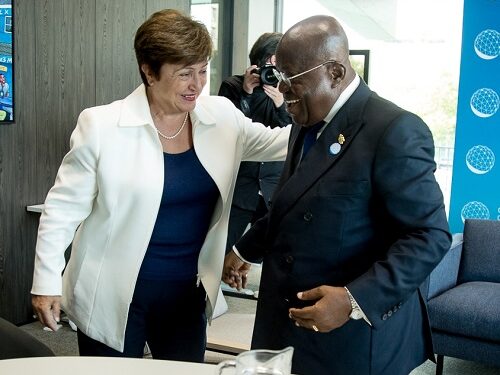Successful implementation of debt restructuring not sufficient to regain market access – IMF to Akufo-Addo
Ghana has been closed to accessing the international capital market since 2022 due to its debt distress situation.
- Advertisement -
The International Monetary Fund (IMF) has pointed out that a successful implementation of the Government of Ghana’s debt restructuring strategy is not by itself sufficient to regain market access.
According to its Staff Report on Ghana, there is also a need to restore market confidence in the sustainability of Ghana’s economic policies, which requires significant fiscal adjustment amid political challenges.
- Advertisement -
It noted that risks of regaining sufficient market access are also very high.
- Advertisement -
“High prospective debt service to the Fund after the end of the programme may itself make it more difficult to regain market access. Strong programme commitment and ownership by the authorities and continuous engagement with them and their advisors before and following the programme approval could help mitigate these risks”, it explained.
Ghana has been closed to accessing the international capital market since 2022 due to its debt distress situation.
Ghana’s capacity to repay $3bn ECF adequate
- Advertisement -
Meanwhile, the IMF had said that Ghana’s capacity to repay its $3 billion Extended Credit Facility is adequate—assuming successful programme and debt restructuring implementation and provided adequate market access is eventually restored.
However, it is subject to substantial downside risks.
Under the baseline, which does not reflect debt restructuring, it said, several capacity-to-repay indicators are consistently above the top quartile of past Upper Credit Tranche (UCT)-quality arrangements for PRGT programmes.
It mentioned that “outstanding credit is projected to peak at 5.3% of Gross Domestic Product (407% of quota) in 2026, and then gradually converge towards the top quartile of past Poverty Reduction and Growth Trust (PRGT) arrangements over the next 10 years. Capacity to repay is further constrained by Ghana’s low level of reserves”.
At the start of the programme, Fund credit outstanding is at 161% of gross international reserves and remains close to 50% of reserves by the end of the programme.
Source: myjoyonline
- Advertisement -


